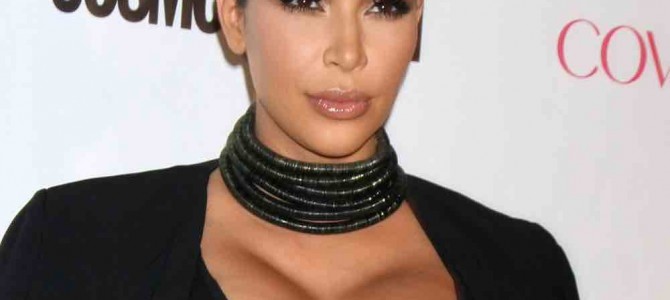
If a female celebrity drops out of the news for awhile or seems to be losing the public’s eye, there’s a very easy way to get attention back: get naked.
I’m not saying this is necessarily why these women take their clothes off (and I’m not saying it isn’t) but I am saying it happens with relative frequency. In the last year we’ve seen , Miley Cyrus, and Kim Kardashian (several times) pose nude.
In case you think only a certain kind of celebrity bares all, a few others who have participated in nude photo shoots (not leaks) include Academy Award-winning Anne Hathaway and world tennis champion Serena Williams. It’s not just women, but it’s mostly women. And they all give the same reason.
“It’s empowering,” said Lovato after her clothes-free photo shoot last year. “I am empowered by my body,” wrote Kardashian in a blog post a few weeks ago, responding to critics of her latest nude selfie. “I am empowered by my sexuality. I am empowered by feeling comfortable in my skin.”
For some reason, we buy this narrative. Maybe we’re all afraid of being called prudes or slut-shamers, but when someone says “empowered,” the critics fall silent.
Nakedness Means Vulnerability
There are two problems with the empowerment narrative. It’s false and it’s dangerous.
We are so saturated in sexuality that we seem to have forgotten what nakedness actually is. Universally, to be naked is to be vulnerable—vulnerable to the elements and vulnerable to others.
If that isn’t obvious, just think about under what circumstances most people willingly get naked: when they are in private or in the exclusive presence of someone they trust. Or, perhaps, under the influence of alcohol or sexual desire, God-knows-where with God-knows-who; but most people consider that foolish, which only affirms the reality that nakedness is vulnerability.
Now consider what kinds of people get naked publicly: celebrities, porn stars, strippers, sex slaves. How empowered are these people? Celebrities are powerful because of their fame, often also their wealth, and in some examples their title (think Kate Middleton). Porn stars may be somewhat powerful, because they have some degree of fame or infamy.
But we also know the nature of their work is dangerous, associated with sexually transmitted diseases, abuse, and an unbelievably high suicide rate. Strippers are much less powerful, while working in equally if not more dangerous conditions. And sex slaves are the epitome of powerless. The vast majority of these women, despite getting naked publicly, know that they are in a vulnerable position when they do so.
Clothes, Like Lawyers, Are Self-Protection
So here’s the point: the only reason any of these celebrities can call their nakedness empowering is because they were powerful before they took their clothes off. They have a contract with the photographer, they have security guards, and they have the funds for a lawsuit. They are privileged women, protected from the potential consequences of their folly.
Sure, they’re being objectified by men the world over, but that won’t worry them—because the men can’t touch them. So when they turn around and claim “it’s empowering,” they are mocking women of less privilege and means. They may tell us they undress publicly because it makes them powerful, but the truth is they are powerful, and in consequence they can undress publicly. Their nakedness is a statement of their wealth and position, a reminder to the rest of the world how far above us they are—they can get naked without consequences!
God forbid any less privileged women follow in their example. The fact that nakedness is vulnerability is not a cultural prejudice against clothing or women. It is part of being human. I’m guessing Adam and Eve had something to do with it, but it’s our job to live with it. And we do that by wearing clothes.
What we wear (or don’t) determines our relationship to those around us. I can show up to work in a bathrobe, and tell my colleagues not to worry; despite my appearance, I will assume a business-professional relationship with them. But I would be sent home. Such dress literally disqualifies me from a professional relationship.
Likewise, what I wear can empower me for professionalism, or for comfort, celebration, or to face the elements. By my clothes I can inspire approachability, intimidation, or attraction. The ability and means to dress according to the relationship you want—that is empowering.
While I fully expect the more privileged women in our country to continue undressing for some twisted confidence boost, and they are free to do that, let’s stop tolerating the empowerment narrative and call it what it is: a dangerous lie. If you presume to speak for women everywhere, we will hold you to a higher standard.








